Published
- 09:00 am

Napier, the financial crime compliance specialist, has announced that its end-to-end financial crime risk management platform, Napier Continuum, is available to the Japanese market through a newly-minted partnership with Japanese firm GRCS.
Established in 2005 and listed on the Tokyo Stock Exchange Growth Market, GRCS provides expertise and solutions in governance, risk management, compliance, and security to regulated Japanese firms. The partnership with Napier will see GRCS reselling, implementing and supporting locally Napier Continuum, its advanced financial crime risk management platform.
The move forms part of Napier’s strategy to secure partnerships and third-party alliances worldwide, in a strategic push to incorporate the expertise of regional partners to deliver tailored services in line with local regulations, risk landscapes, and implementation requirements.
Melissa Warren, Napier’s Global Head of Partnerships, said: “In GRCS we have a partner with a strong reputation that understands not only the regional market but also the technology. By working with partners like GRCS we can ensure that our solutions can be fully leveraged by local companies.”
The recommendation of the global money laundering and terrorist financing watchdog, FATF, is that improving the effectiveness of key areas of the country’s anti-money laundering and counter-terrorist financing framework should be a top priority for Japanese authorities.
Napier’s Head of APAC, Robin Lee, said: “With the complex regulatory environment in Japan, technology solutions like Napier Continuum are exactly what the market needs to keep up with the ever-evolving challenges of combatting financial crime. Through this partnership, we can better serve Japanese customers and significantly enhance their compliance capabilities.”
The platform provisions access to Napier’s suite of financial crime compliance products including transaction monitoring, screening, and risk assessment tools, with full STP to third-party and proprietary applications such as AML, KYC, fraud and CRM systems.
Joji Watanabe, Head of Business Developement at GRCS, said: “With Napier’s advanced platform, we will be able to offer the highest standards of financial crime compliance to the local Japanese market and help clients meet regulatory best practices. The combination of Napier's world-class technology and our regional expertise will give our clients full capabilities across the entire risk profile of their customers. We’re delighted to join up with Napier to supercharge our compliance efforts.”
Related News
- 01:00 am
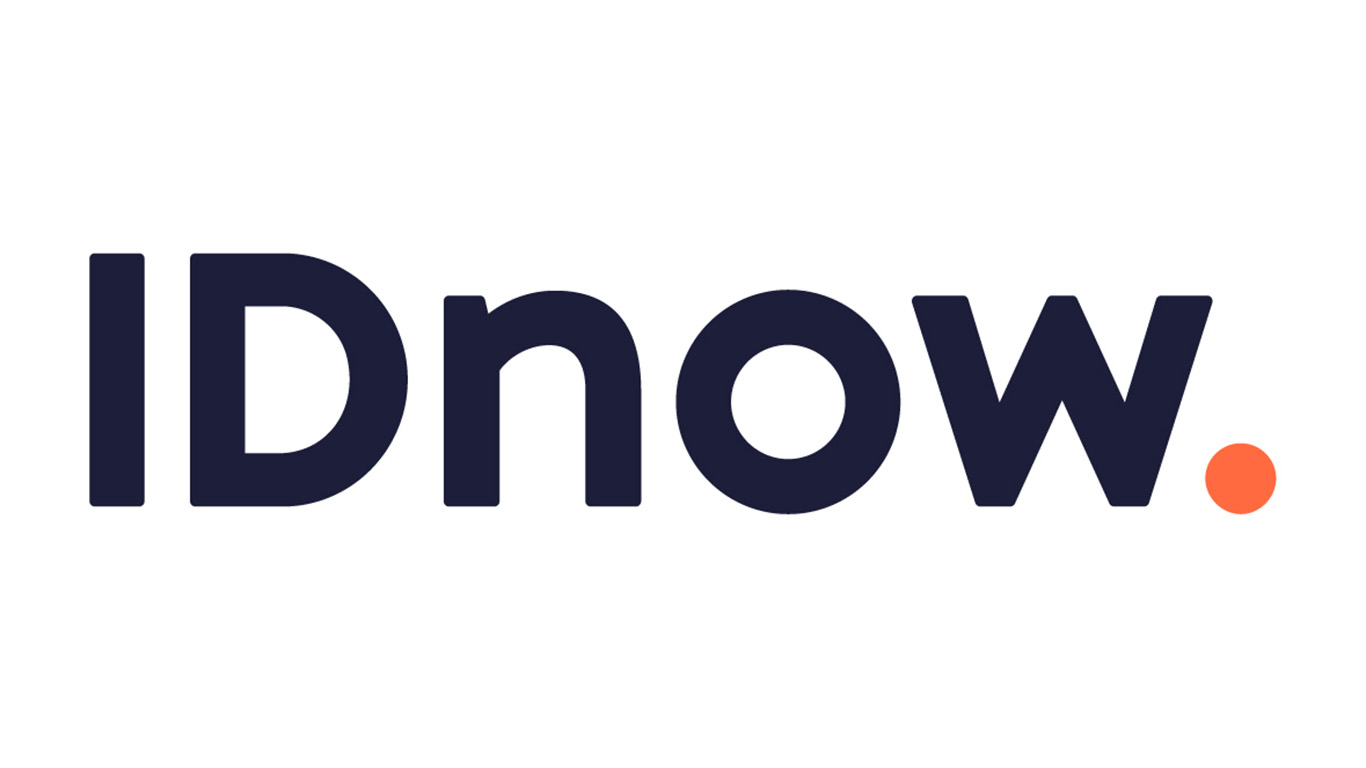
IDnow, a leading European identity-proofing platform provider, has appointed Jason Tucker-Feltham as its Head of Crypto Sales. Based in IDnow’s London office, Jason brings with him more than a decade of experience in financial services, with the last four years spent specialising in crypto.
Jason, who is also the committee chairman at Crypto Club Global, is a passionate industry advocate, and regularly engaged as a speaker at crypto events in the UK and beyond. Previously, he worked in business development and European sales at Celsius, where he covered some of the largest institutional clients in the crypto space. Before that, he was the Head of UK Advisory Compliance at UniCredit, where he lobbied for proportionate MiCA regulation on behalf of the entire banking group.
Commenting on his appointment, Jason said: “The crypto market has been consistently growing in relevance ever since the inception of Bitcoin in 2009. In that time, market capitalisations of most crypto assets have varied considerably, but industry momentum indicates that crypto has a future and may well turn traditional finance on its head.”
“However, with decentralised finance (DeFi), there are concerns that bad actors can exploit digital asset platforms. This is where Know Your Customer (KYC) and the tokenisation of identity can come in. These processes can build an additional layer of trust between all market players. As one of the leading platform providers for identity proofing in Europe, IDnow is a great fit for the rapidly maturing crypto industry,” he added.
Benjamin Haas, Senior Sales Director EMEA at IDnow, commented: “We’re excited to have someone as knowledgeable in the crypto market as Jason as part of the team. In his capacity as Head of Crypto Sales, he will be responsible and accountable for our go-to-market crypto strategy.”
“Given the developments in the crypto industry currently, having Jason join the team now is great timing. The crypto market is clearly in need of regulation and with our team and our market leading solutions, we want to be at the forefront of this change,” Benjamin added.
Related News
- 01:00 am

Global technical body EMVCo has issued its 100th Security Evaluation Certificate for Software-Based Mobile Payments (SBMP) solutions. This milestone reflects significant industry uptake from leading device manufacturers and product vendors to demonstrate the security of their solutions through a globally recognised programme, promoting trust and confidence across the payments ecosystem and simplifying the deployment of safe and secure mobile wallet solutions.
The continued growth of mobile payments has increased the number of solutions deployed that use software applications to enable consumers to pay in-store. As these software-based solutions operate in the more vulnerable consumer device environment, mobile wallet providers use a layered security approach comprising various software and device components to combat threats.
To support this layered security approach while ensuring flexibility and efficiencies, EMVCo introduced a dedicated Security Evaluation Process for SBMP in 2018 to assess the different security components that can be integrated into a SBMP solution. Specific components evaluated by EMVCo include software development kits (SDK), trusted execution environments (TEE), consumer device cardholder verification methods (CDCVM) such as biometrics/authenticators, attestation mechanisms and software protection tools. Full mobile payment applications comprising various individual components can also be evaluated.
“Advancing testing and evaluation processes is integral to enabling more consistent, convenient and secure payment experiences,” comments Alisa Ellis, EMVCo Executive Committee Chair. “Issuing 100 Security Evaluation Certificates for SBMP Solutions is testament to increasing demand for secure mobile payments worldwide, and this is enabling mobile wallet providers to realise significant efficiencies and accelerate deployment by easily identifying the products that have been evaluated.”
EMVCo Security Evaluations ensure that a payment product or solution has been assessed against the common EMVCo evaluation methodology and includes mechanisms and protections to withstand known attacks. SBMP Security Evaluations are conducted by a global network of 9 accredited laboratories, with EMVCo acting as a trusted authority. Approved products are listed on the EMVCo website.
Related News
- 03:00 am
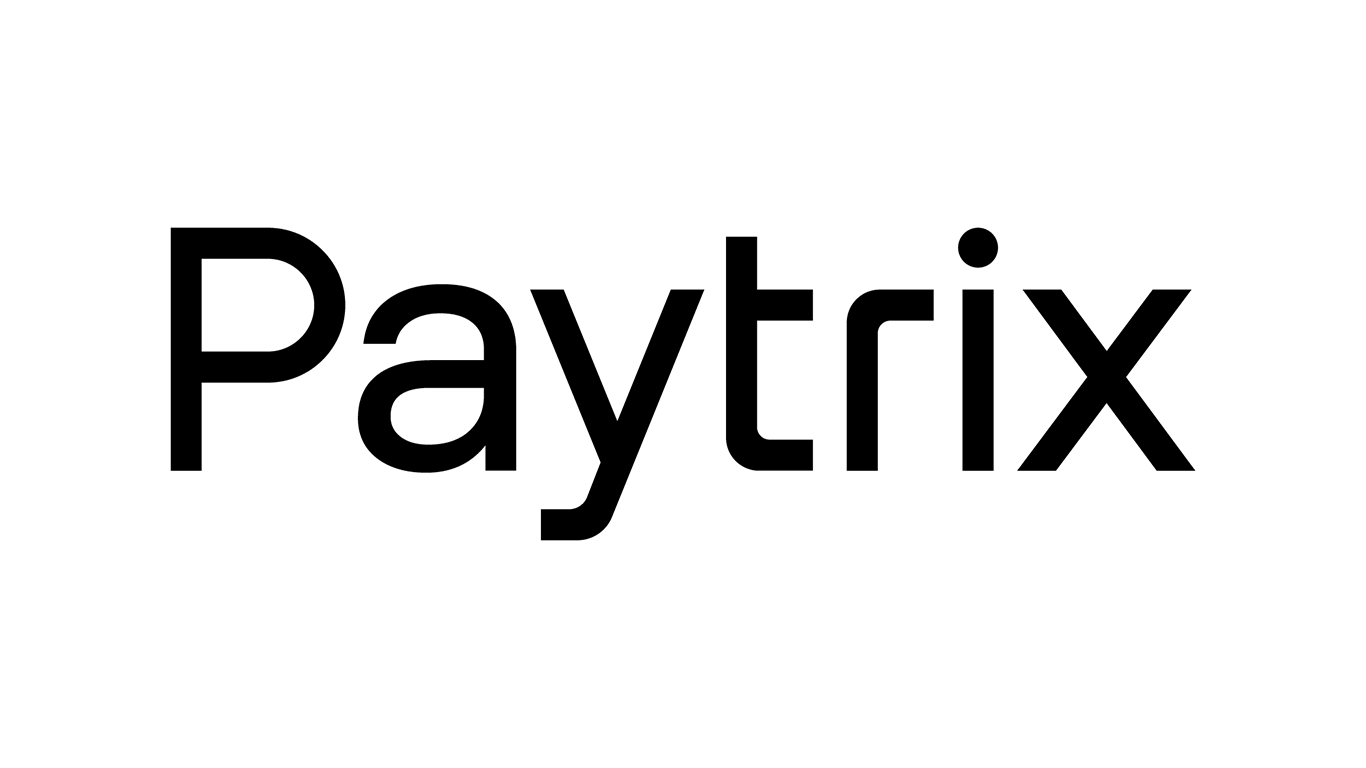
Paytrix, the London-headquartered fintech that simplifies global payments for high-growth businesses, today announces the appointment of David Sola as Chief Financial Officer.
David has previously served as Managing Director at multinational financial services firms UBS, Softbank Europe and Houlihan Lokey. His 20 years of financing and M&A experience with rapidly growing fintech, e-commerce and internet companies will be invaluable as Paytrix realises its ambition of delivering a global payments solution through one contract and one API.
The appointment comes shortly after Paytrix raised £5m in pre-seed funding from a number of high-profile investors, including lead investor, Hambro Perks, along with Better Tomorrow Ventures, Fin Capital, Bain Capital Ventures, Clocktower Group, The Fintech Fund, D4 Ventures, and notable angel investors. Investors were persuaded by the merits of the Paytrix vision — of eradicating the need for scaling businesses to commit people, time and money to managing payments across multiple jurisdictions.
David Sola explained why he’s joining Paytrix: “Time and again, I’ve seen high-potential companies struggle to cope with large payment volumes — ‘global payments’ means complex infrastructure, high costs, geographic fragmentation and constantly evolving regulation. Paytrix’s curated payments solution solves all of this with access to the best payment providers around the world through one ecosystem, one contract and one API. It’s a big opportunity and I am delighted to be part of making it happen.”
Aran Brown, Paytrix’s Co-Founder & CEO, said: “We’re thrilled to bring on board someone of David’s stature. As we build a curated global payments experience for fast-scaling businesses, David has seen it all — from the side of the customers we’re building to serve, and from the vantage point of a venture capitalist, a senior management executive and an investment banker. David’s knowledge of the complex payments challenges we’re trying to solve will be hugely beneficial for our expansion plans.”
With his appointment as Paytrix CFO, David joins an experienced senior leadership team with a long record of industry achievements. Paytrix CEO, Aran Brown, has spent the last 15 years scaling and transforming payments companies and contributed to the growth and sale of Travelex and Skrill to corporate buyers. Co-founder and CPO Eddie Harrison has run product, global strategies, and financial networks for his entire career, having built market-leading global payment products at Fortune 500 businesses Western Union and Travelex, as well as at budding startups such as Ixaris. CTO, Ed Addario, served in the same role at Salary Finance, Currencycloud and others prior to joining Paytrix; while Mike Southgate, Chief Compliance Officer, was formerly Compliance Director at Google and is currently the Anti-Money Laundering and technology lead for AFEP (a trade body for payments firms).
Related News
- 04:00 am
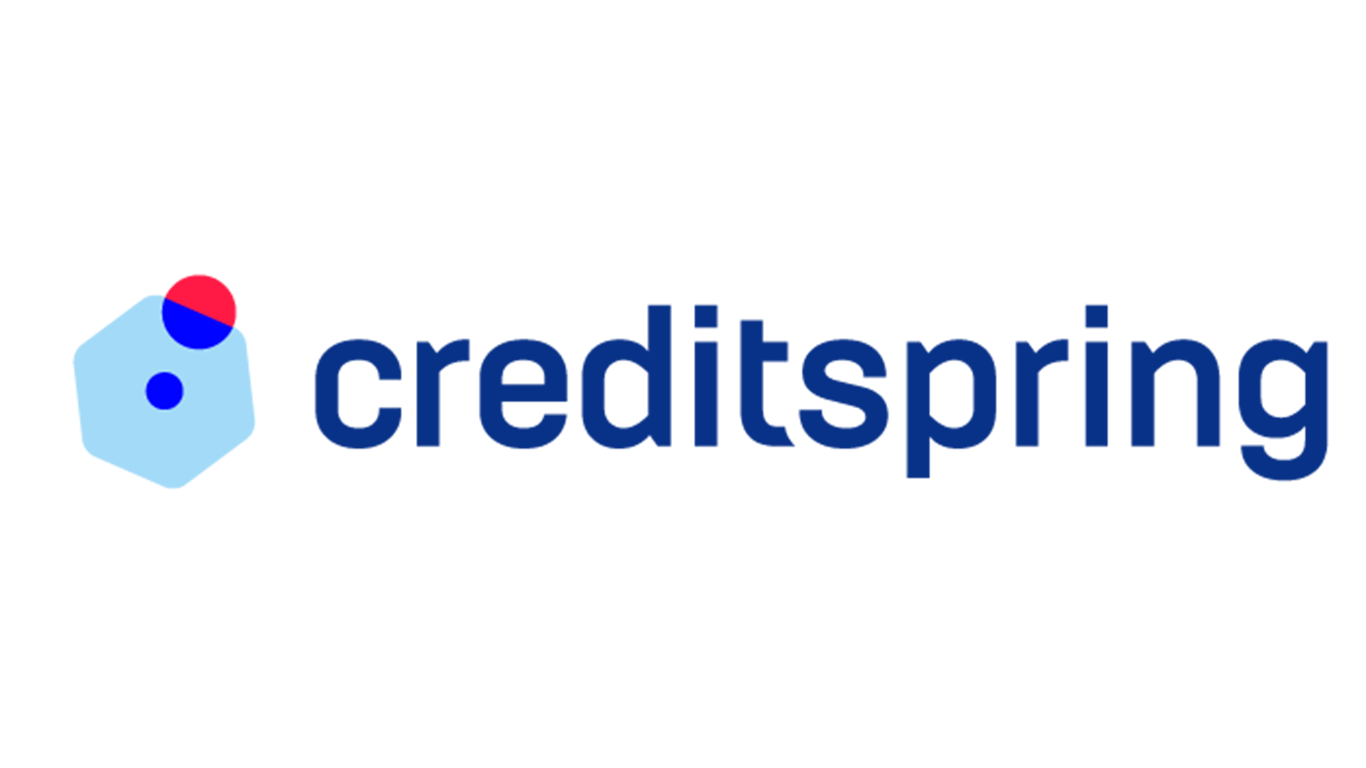
Creditspring, the responsible lender, has expanded its senior leadership team with a new Vice President of Operations, Head of Credit Operations and Head of Data as the UK becomes increasingly reliant on credit due to the cost of living crisis.
The expanded operations leadership team will play a vital role in supporting members who are increasingly reliant on affordable credit, due to the cost of living crisis. Creditspring’s research shows that over a quarter (27%) of people are forced to dip into their savings every month just to make ends meet. Recently, Creditspring has seen a spike in applications as member numbers have more than doubled since the start of the year from 100,000 to over 225,000. In September alone, 2.6 million people applied to Creditspring for affordable credit.
Creditspring’s new Vice President of Operations, Hannah Matson, joins from merchant bank BDT & Company International where she was Regional Manager for the Business Administration and hired to support their European expansion. Previous to BDT she held operational directorships in the hospitality industry as well as various operational positions in venture capital firms in both the UK and abroad. Hannah will be responsible for ensuring the appropriate infrastructure is in place to support Creditspring’s growth demands as well as helping ensure smooth running of the overall business.
Tamsin Powell joins as Head of Credit Operations from her role as Senior Manager at Structured Finance provider, Conister. Previously she has held Operations Director roles at consumer credit lenders; Zebra Finance and British Credit Trust, responsible for lending and collections functions. As a member of the Executive and Risk Committees she was also responsible for driving company strategy, change and culture. Tamsin will be responsible for ensuring that credit operations are running effectively and identifying opportunities for continuous improvement in operational processes.
Previously Head of Data and CRM at Alzheimer’s Research, Adrian Smith joins Creditspring as the lender’s new Head of Data. Previously, Adrian was the product owner of the financial data mart at a leading challenger bank, and has spent nearly 20 years working in the City. At Creditspring, Adrian will be ensuring that data is used effectively to add value, as well as developing a data governance framework for the benefit of the company and its members.
Neil Kadagathur, CEO of Creditspring said: “Enhancing the operational side of the business at a time when people are more reliant on credit, is vital to improve customer experience and offer more vital financial support. Through improved use of data and more accurate affordability checks, we can streamline the approvals process to make more accurate lending decisions and ultimately make it quicker and easier for members to borrow without the risk of incurring debt.”
"People are increasingly reliant on credit tools and financial support to survive the cost of living crisis. The expansion of the operations team is integral to our longer-term growth plans, which aims to offer increased financial support to members, as well as our mission to empower members to make improved financial decisions to protect their future financial health.”
Hannah Matson, Vice President of Operations at Creditspring comments: “Demand for affordable credit is continuing to grow as the cost of living crisis sends shockwaves through the UK. The work that Creditspring is doing has never been more important, and I am looking forward to being part of the team delivering for borrowers across the country.”
Recently, Creditspring launched its latest education tool – Spring Score – which provides insight into members’ eligibility for Creditspring products to improve access to financial support tools. These tools include the ‘Step’ credit builder which helps members gradually improve their credit score, without collecting further debt.
Related News
- 02:00 am

“The idea for Buddy came when I started living with my girlfriend. I tried a number of budgeting apps to help with our newly collective finances, but none of them catered to what I wanted. Either the user experience was clunky, or they weren’t customisable to an individual’s needs. I wanted to make something sharp, simple, fun and visually appealing, while also collaborative.”
“That was when I decided to quit my day job as a software engineer. I realized not just the extent of the demand for a product like Buddy, but the meaningful impact it could have worldwide. Young people today are growing up in a dramatically different economic landscape to their parents and grandparents. Home-ownership is far from a given, and we are about to enter a prolonged period of economic uncertainty and expensive living costs.
“Tools such as Buddy can provide young people with the acumen and information to live sustainable financial lives. If we’re able to play a small part in helping someone save for a house or that holiday they’ve always wanted to go on, then building Buddy will have been worth it. I think that’s why so many people around the world have chosen to put our app in their pocket.”
Related News
- 01:00 am

Plum, the European smart money app, is adding crypto investing to its range of investment options in France, Belgium, Spain and Ireland, via services provided by Bitpanda.
Plum customers in these markets can now buy, sell or hold five popular cryptocurrencies through the app: Bitcoin (BTC); Ethereum (ETH); Cardano (ADA); Solana (SOL); Binance Coin (BNB). The company chose to offer these more established coins only at this stage to encourage a longer-term investing approach and reduce complexity.
People will be able to buy fractional shares of these cryptocurrencies through the Plum app and can start investing in crypto with just €1. They will be able to access unlimited crypto transactions at a fixed rate of 2.5% per transaction.
Plum is working with fintech unicorn Bitpanda to make this crypto offering available, which means Bitpanda’s cutting-edge API solution is fully integrated with the Plum app. As a result, Bitpanda’s crypto services can be accessed through Plum’s interface, with all transactions executed by Bitpanda. Crypto investments are physically backed up and kept in cold storage by Bitpanda to help ensure their safety. Customers can access them whenever they want.
Plum also launched commission-free* stock investing in EU countries earlier this year in September. Together with crypto, the company is building a market-leading range of assets to allow European customers to diversify their portfolio in one smart app.
Victor Trokoudes, CEO and co-founder of Plum, says: “Our customers in the EU are keen to explore crypto as an asset class, so we are delighted to be bringing them this new service in a quick and secure way. At Plum, our aim is to offer superior financial tools to help people grow their money over time in the most efficient way possible.
“Crypto looks set to play a key part in the investment journey of the future so it’s exciting to be able to give customers access to this asset class now as part of a diversified portfolio. We’ve chosen to offer five, more established coins at this stage as we want to make financial management simpler for people and encourage a longer-term investing approach instead of shorter-term trading”.
Eric Demuth, co-founder and CEO of Bitpanda, adds: “As the industry evolves it is becoming increasingly clear that the best way for fintechs to truly have an impact on people’s lives is by working together. Bitpanda’s crypto services made available by Plum is a great example of this, and is now unlocking opportunities for investors in Europe to take control of their financial futures.”
The Plum app has grown quickly across Europe thanks to its combination of automated saving and spend management tools alongside a range of investment options, with more than 1.4m customers using it.
Related News
- 04:00 am
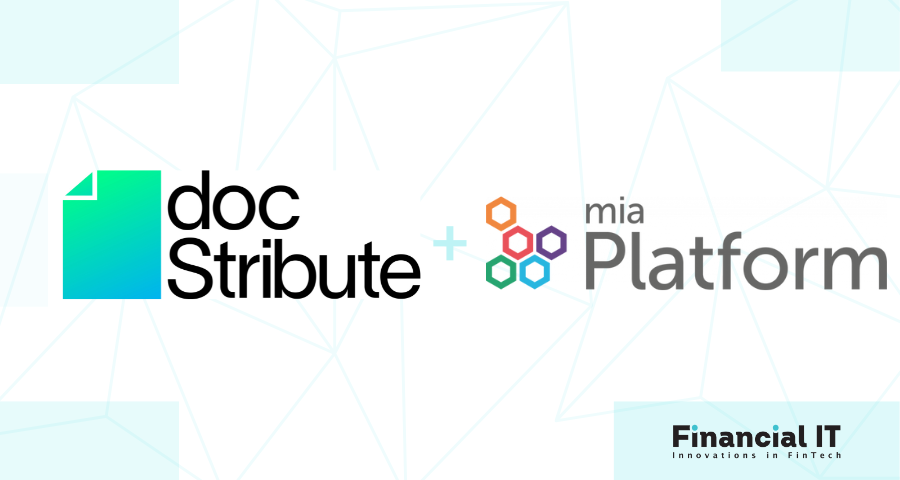
London-based RegTech startup docStribute has joined the Mia-Platform Partner Network. Effective immediately, docStribute solutions will be available to businesses on the Mia-Platform Marketplace.
docStribute uses a distributed ledger application that utilises a decentralised public network known as hashgraph, a secure, shared database that everyone can read from and write to, and a faster, more secure alternative to blockchain. docStribute provides a secure document distribution (dSend).
Through dSend, secure links can be sent in the body of emails that direct the recipient to an immutable digital version of the document in their web browser, which can then be downloaded if requested. docStribute has been striving to help businesses in various sectors streamline working practices while ensuring that they are meeting regulation requirements.
docStribute CEO Chris Ansara said: “There was a natural fit with our offerings as we are both working to transform the finance industry. We are excited to be working with the team at Mia as we strive to make our solution more accessible to businesses via their marketplace. docStribute shows that another way, a better way, is possible.”
Regulated industries such as the financial and legal sectors often have to exchange documents using physical format. dSend makes the document exchange process easier by allowing even the strictest organisations to leverage digital documents through immutable documents.
“docStribute brings the power of Distributed Ledger technology within Mia-Platform Marketplace. Its innovative technology will support our clients operating in regulated industries such as the financial sector, but not only, to simplify and accelerate the processes of distribution and sharing of documents, with significant benefits in terms of cost and time reduction,” comments Bruno Natoli, CEO at Mia-FinTech.
Some of the key use cases for immutable digital file sharing are related to:
● Storage and sharing of documents in Digital Onboarding processes: for the registration contracts’ terms & conditions in different industries such as Banking, Insurance, Utility, Energy, for the opening or closing of a contract, for the validation of a new contract in case of an up-selling / cross-selling, for reimbursing management, for the signature of compliance documents and so on;
● Open Banking: for the storage and sharing of documents with the customer’s consent on the collection of sensitive data on all new open banking processes
● Digital Payments: for the archiving and sharing of digital payment receipt invoices;
● Current Account / Personal Loans: for the distribution and saving of documents in loan processes, or confidential documents for opening current accounts;
● Account Management: for the distribution and saving of documents related to account closure or closing of utilities (e.g. energy industry);
● Insurance: for the distribution and saving of documents related to Insurance liquidations.
The docStribute and Mia-FinTech partnership closely follows docStribute’s deals with global technology behemoth Salesforce to make its Document Distribution and Digital Signature solutions available to its 150,000+ customers and the UK Government’s Crown Commercial Service (CCS) to be listed as a G-Cloud 13 supplier, making docStribute technology available to over 52,000 public sector and third sector organisations.
Related News
- 03:00 am

Global payments provider BPC today announced that it has launched Software as a service (SaaS) processing in Pakistan, through PCI DSS-certified local cloud data centre to serve the growing demand for cloud services from banks, fintechs, and payment enablers.
Since establishing itself in Pakistan as a solution provider in 2019, BPC has been powering technology solutions and accelerating the nation’s rapid and recent digital transformation. With a population of over 220 million and a large mobile penetration rate, Pakistan has seen enormous growth in digital payments, both in value and volume of transactions – leading to rising demand for SaaS services.
Since regulation requires on-soil processing of cards and consumer data, this latest development sees exciting new opportunities for SaaS popularity throughout the region. This cloud-based software delivery model is increasingly required in the payments industry, especially in developing markets like Pakistan, where the use of payment cards is surging, along with the need for heightened online security among customer payments.
Ahson Saeed, MD Pakistan, BPC, commented: “Now more than ever, financial institutions need more than technology - they need partners that can share knowledge and operational expertise, keeping the focus on the client and end-user experience. We’re thrilled to be offering world-class solutions under SaaS with clear cost benefits under the pay-as-you-grow model, which positions us to serve the growing fintech segment of the payment industry in the country.”
SaaS represents many benefits for financial institutions. As the SaaS provider manages the application software, updates, as well as hardware, SaaS customers can dramatically lower their costs while being able to scale and upgrade business solutions quickly and easily – all while being able to predict costs with greater accuracy.
The local SaaS offering also strengthens the firm’s O-CITY and Marketplace solution offerings to government and other industry sectors. The firm has already achieved impressive penetration in Pakistan, including partnering with banks like Meezan Bank and Samba Bank to enable cross-vertical digital banking transformation and extend market reach through various collaborations.
This latest development complements the existing end-to-end banking and payment services offered by BPC, including a wide range of cloud-based white-label services. These spans digital banking, merchant management, ATM & POS acquiring, card management, fraud prevention, ACS, and integration platform, among many others, along with the skilled, local teams to support financial institutions.
Related News
- 08:00 am
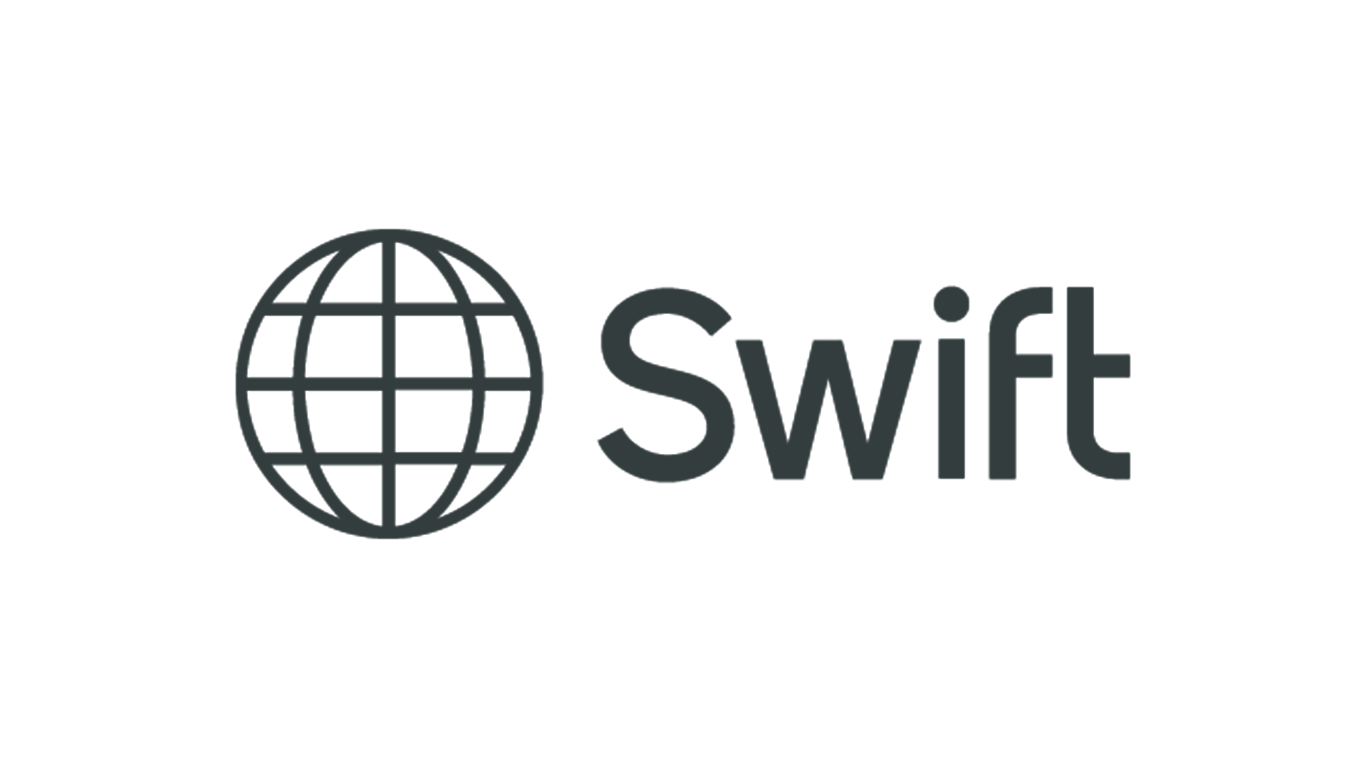
Swift today reported significant progress in 2022 toward the G20’s goals for enhancing the cross-border experience, rapidly setting a new standard for low-value payments, transforming upfront payment processing to remove friction, bringing new levels of transparency to the securities industry, and delivering breakthrough innovation to integrate CBDCs into the financial ecosystem.
The progress is the result of a strong strategic focus over the past two years to enable instant, frictionless processing between 4 billion accounts worldwide and aligns with the G20’s objectives of improving speed, cost, transparency, choice and access in the cross-border payments experience. Swift’s achievements this year include:
- Increasing speed – Today, nearly half of Swift transactions reach end beneficiaries within 5 minutes and two-thirds arrive within one hour, well on the way to the G20’s target of 75% settling within 60 minutes.
- Giving choice to small businesses and consumers – Sign-ups for Swift Go, which brings speed, transparency, and certainty to payments under $10,000, have tripled to more than 500 banks across more than 120 countries.
- Removing costs – Swift’s enhanced payment pre-validation service, which pre-checks account details against pseudonymised and aggregated data from more than 4 billion accounts to catch errors before payment is sent. Its deployment, which could save the industry millions each year in costs to fix failed transactions, currently covers 70% of beneficiary accounts in major markets.
- Increasing transparency – Building on the transparency delivered for payments through gpi, Swift is doing the same for securities. Swift Securities View, which was successfully piloted this year and will be rolled out in 2023, provides unprecedented transparency on the processing of securities transactions after a trade takes place. Failed settlements cost the industry an estimated $3bn each year.
- Broadening access to Swift’s solutions – Through public cloud services including Amazon Web Services, Google Cloud and Microsoft Azure and increased use of APIs.
Thierry Chilosi, Chief Strategy Officer at Swift commented: “Swift and its community have made tremendous progress in 2022 transforming not only the cross-border experience of today – but setting the pace of innovation for tomorrow. We are getting ready for a world where value is transferred in many ways and forms right around the world, and Swift’s focus on inclusivity and interoperability promises to increase the efficiency and reduce the risk of these exchanges.”
To this end, in October, Swift announced ground-breaking innovation after successfully demonstrating how Central Bank Digital Currencies (CBDCs), and tokenised assets, could be exchanged across DLT and fiat-based systems . Swift’s innovation proved that ‘digital islands’ across the world can be connected, realising the technology’s full potential to enable instant and frictionless payments and securities transactions. The CBDC solution is now being tested with 18 central and international commercial banks.
Furthermore, 2022 is set to be the 13th consecutive year of annual traffic growth on the Swift network, with an average of 44.8 million messages sent across Swift’s system each day by the end of October 2022, an increase of 7.7% on October 2021. The growth underscores the industry’s trust in Swift, which continues to deliver on its day-to-day mandate, with a relentless focus on operational excellence.
David Watson, Chief Product Officer at Swift, said: “We have delivered at pace in 2022, and 2023 is sure to be another transformational year as we start to realise the benefits of rich data through the industry’s migration to ISO 20022 and the ramp up of our transaction management capabilities. Through responsible innovation, we will continue to transform the cross-border experience and accelerate momentum toward the G20 targets.”









